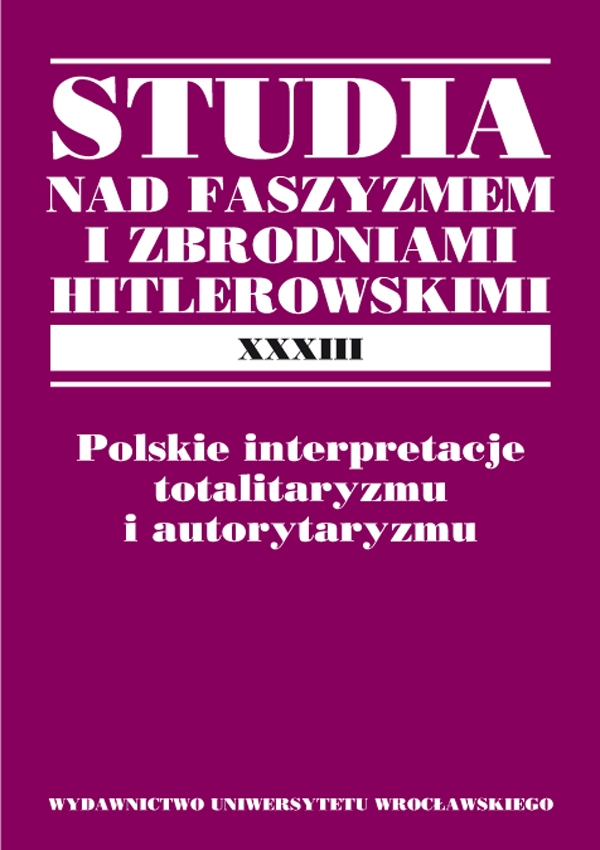

Artykuły

THE NUREMBERG TRIAL IN FRANCISZEK RYSZKA’S HISTORICAL-AND-LEGAL ANALYSES. THE CONCEPT OF CRIMINAL AND CRIME
Franciszek Ryszka August 4th, 1924–March 31th, 1998 — lawyer, historian of the state, law and political-and-legal thought, political philosopher, researcher of the recent history, the Second Polish Republic, the occupation period and the communist times — specialized in the history of Nazi Germany. Analyzing the Nuremberg trials, F. Ryszka paid special attention to the concept of “criminals” and “crime.” Statute of the International Military Tribunal defined the substantive premises for the punishment of the Third Reich’s major war criminals and also the very concept of “criminal.” However, it was the Americans who played the dominant role in the Nuremberg trials. They introduced the concept of a “collective crime,” understood as a participation in the Nazi conspiracy. They enforced the concept, which was ultimately adopted in the indictment, of conspiracy, denoting the organized criminal activity, realizing criminal purpose through belonging to the same organization or group the activities of which exhaust all the defining features of conspiracy crimes, crimes against peace, war crimes and crimes against humanity. The indictment included those found guilty of serious felonies and criminal groups which fulfilled the definition of “criminal organization.” The Court did not, however, recognize the government of the Reich, SA, and OKW as criminal organizations because it was not proven during the trial that just the very fact of being a member of those organizations could be equaled with a conscious participation in criminal organization. According to the Tribunal’s decision, the criminal responsibility for belonging to criminal organizations was limited tothe time of war, because no one could have been called to account for belonging to an organization before September 1st, 1939. It should also be pointed out that the most important achievement of the Tribunal was the recognition of the war of aggression as the most serious international crime which subsumes the rest of war crimes.